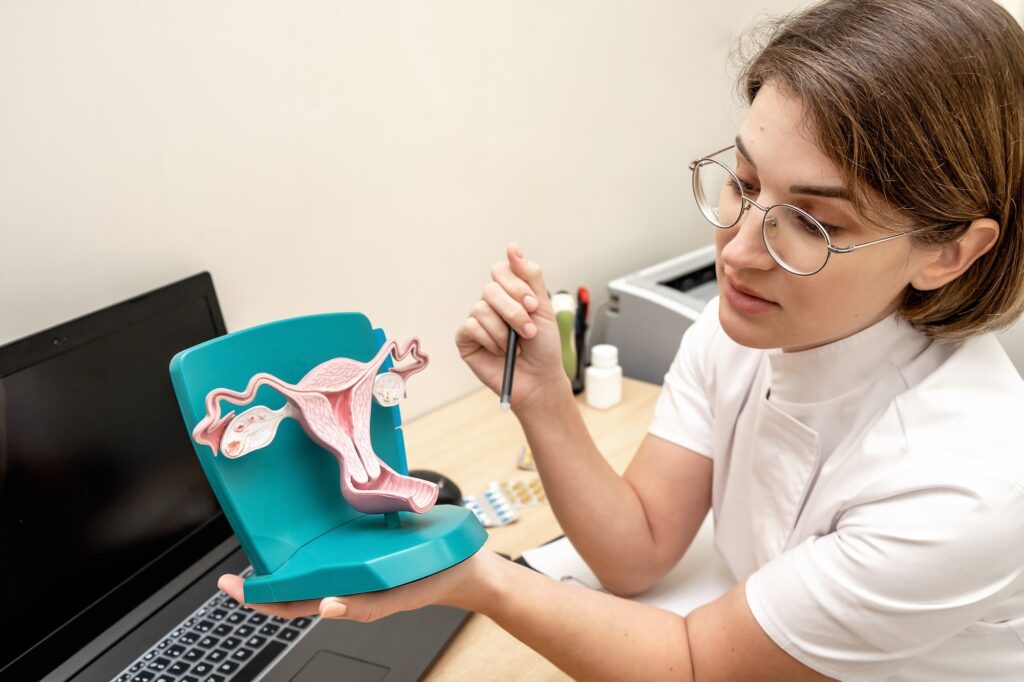Gynecologists are surgeons specializing in women’s health issues. When it comes to gynecology, it can be difficult to distinguish what is “normal” from potential health concerns.
In our society, vaginal health is often seen as a taboo topic. However, no matter how embarrassing a subject may seem, it’s crucial to discuss it with your doctor. Remember, your gynecologist has likely seen or heard it all before. They are there to help, not judge.

Seven Things You Should Always Discuss with Your Gynecologist
1. Painful Periods
For many women, their period is an unpleasant time marked by cramps, breast pain, and headaches. However, if your menstrual pain is extremely severe or worsens over time, it could signal conditions like endometriosis or fibroids. Many solutions can make these issues manageable, so it’s vital to consult your doctor.
While most women endure painful and unbearable periods, they often avoid seeing a doctor. Severe menstrual pain might indicate a problem. Please don’t suffer in silence. Discuss your painful periods with your gynecologist.
2. Vaginal Odor
Discussing vaginal odor might seem awkward, but if the smell is unusual, unpleasant, or fishy, it’s essential to bring it up. Abnormal odor could indicate bacterial overgrowth or a vaginal infection. Make sure to talk to your gynecologist if you experience this issue.
3. Swelling
If you notice swelling, itching, or growths around the labia, consult your doctor. While it might be something minor, like an ingrown hair, a pimple, or irritation from shaving, your gynecologist can rule out more serious concerns.
4. Pain During Sex
Experiencing discomfort during intercourse is not something to endure in silence. Vaginal dryness is a common cause, often related to age, stress, or hormonal contraceptives. Your gynecologist can suggest solutions tailored to your situation and help alleviate the discomfort.

5. Sexual History
Women often feel uncomfortable discussing topics like the number of partners they’ve had, their age at first sexual intercourse, or if they’ve had sexually transmitted infections (STIs). Some also fear judgment from their gynecologist.
Your sexual history is crucial in determining risk factors for cervical dysplasia and HPV infections. Additionally, some STIs can increase infertility risk, so your doctor can provide appropriate guidance. Always provide accurate and complete information to your doctor.
6. Urinary or Fecal Incontinence
Experiencing urinary or fecal incontinence can be stressful and negatively impact your quality of life. Many women experience these symptoms, particularly after vaginal births involving forceps or vacuum. These issues may worsen during menopause. Discuss with your gynecologist to identify suitable treatment options or get a referral to a pelvic floor specialist if needed.
7. Low Libido
While low libido is more common than many women think, it’s essential to discuss your concerns with your gynecologist. Libido can sometimes be affected by medications or underlying medical conditions. In such cases, your gynecologist can identify the necessary medical interventions.
Other factors like stress, work, or long-term relationships can also affect libido. Your gynecologist may provide suggestions to enhance your libido naturally or refer you to an appropriate counselor.

 EN
EN TR
TR
